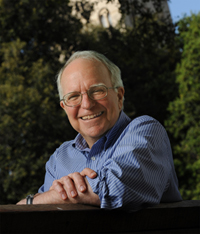

Research
BPEA | 1983 No. 2

1983, No. 2
THE CORPORATION INCOME TAX has been the focus of much criticism and
debate in the United States during the past decade. Many hold it
responsible for the low level of business investment in the United States,
and it has been criticized as a fundamentally unfair and illogical tax
because it taxes corporations as independent entities, regardless of the
tax bracketso f individuals hareholdersM. ucho f the academicd iscussion
in the 1970s about reform of the corporate tax centered on the integration
of corporate and individual income taxes, to make the corporate tax
essentially a withholding mechanism for the individual income tax.’
More recently the emphasis has shifted toward reform by repeal, and
indeed President Reagan himself has called for the abolition of the
corporate tax.